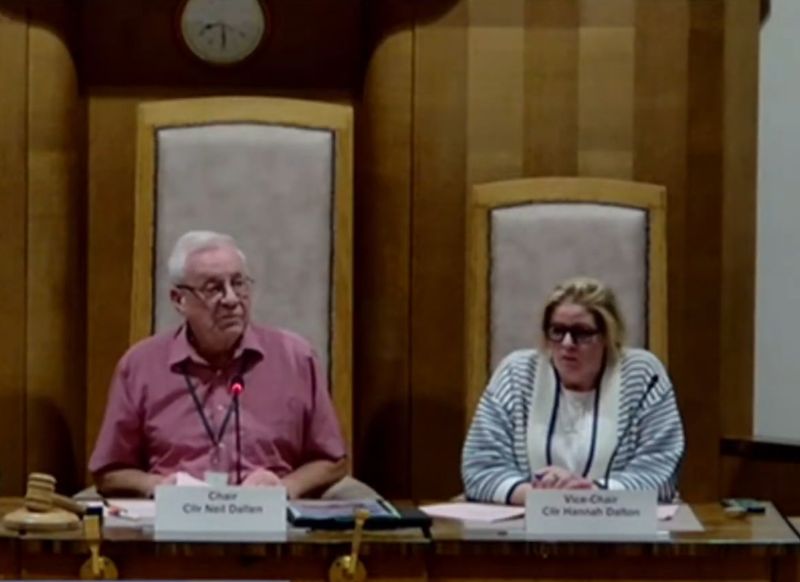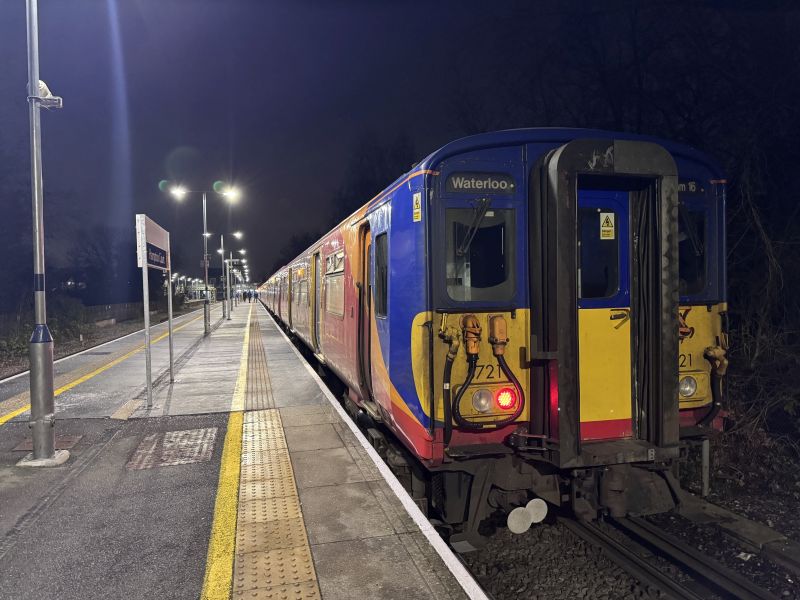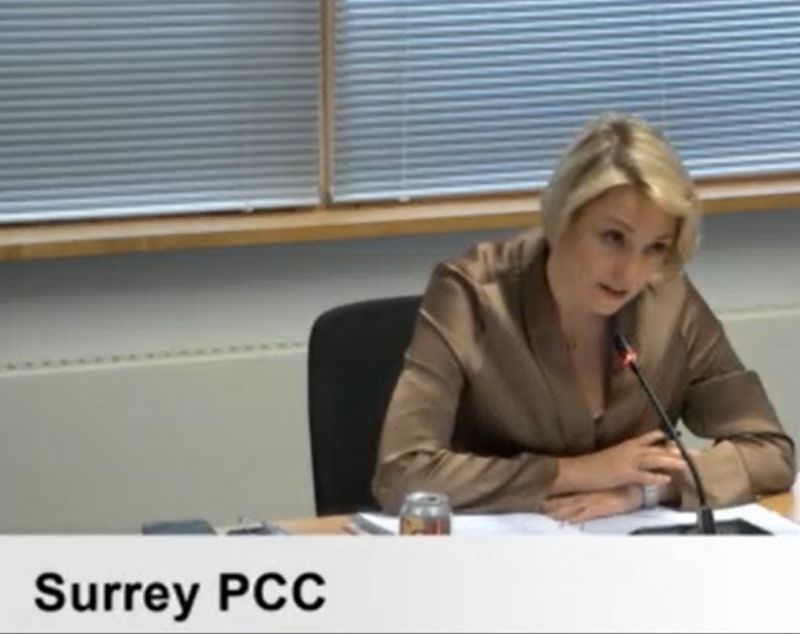Where do we stand on local government reorganisation in Epsom and Ewell and the County?
The future shape of local government in Surrey is moving into its final stage, with national and local plans converging on the abolition of all borough, district and county councils in April 2027 and their replacement by new, directly elected unitary authorities. Epsom and Ewell Borough Council (EEBC) has already taken steps to ensure residents’ voices are not lost in the process, while Surrey County Council (SCC) continues to pilot new neighbourhood structures that could form part of the post-reorganisation landscape.
Financial pressures driving reform
A new report from the UNISON trade union warns that councils across the UK are facing a combined funding gap of £4.1 billion in 2026/27. Demand for adult and children’s social care, inflation, energy costs and homelessness are all identified as key pressures. UNISON’s General Secretary Christina McAnea said local authorities “are still billions short of the money they need to provide essential services” and that cuts “often hit the vulnerable hardest”. The figures provide the wider context for the government’s push towards larger, self-financing unitary councils and new devolved mayoral regions.
Epsom and Ewell Borough Council’s position
Epsom and Ewell Borough Council voted in May 2025 to support a “three unitaries” model for Surrey, submitting its preferred plan to government. Under that proposal, Epsom and Ewell would join an East Surrey unitary alongside Mole Valley, Reigate and Banstead, and Tandridge. Surrey County Council has argued instead for two unitaries – East and West – while others have urged a single Surrey authority. The final decision now rests with ministers.
EEBC has meanwhile carried out a Community Governance Review to explore creating parish or community councils for the borough once the borough council itself is dissolved. The consultation, which asked residents how local representation should continue under a unitary structure, closed at 11.59pm on Thursday 9 October 2025. Results will be analysed and reported to the council later this year.
Chair of the Standards and Constitution Committee, Councillor John Beckett (RA Auriol), said earlier this year that parish councils would provide “an essential link between Epsom and Ewell residents and a new unitary council responsible for a much larger area in Surrey”. He said the borough’s aim was to ensure “that the interests of our residents and local communities have a platform, and that our vital local voice is not lost for future generations”.
All the political parties on Epsom and Ewell Borough Council were asked by Epsom and Ewell Times for their current views. Cllr Kate Chinn (Labour – Court) said: “The Labour group believes LGR benefits all of us. It reduces bureaucracy and increases transparency so reducing the huge administrative back room costs of the 12 authorities which currently deliver services. As devolution develops we will have mayors with strong new powers serving and delivering services for their local communities. It would be best to have 3 unitary authorities in the county which will enable strong local representation without the additional costs of a rather meaningless additional layer with very limited powers.”
Meanwhile, Cllr James Lawrence (LibDem College) said: “Local government reorganisation is diverting significant attention and resources away from the day-to-day work of councils, all for the promise of future efficiencies and savings from creating larger unitary authorities. Yet those savings may take many years to materialise—if they ever do—given that the government failed to carry out its own cost analysis of what is the biggest council shake-up in decades.
We welcome reforms that genuinely deliver cost savings, greater efficiency and clearer accountability to residents. But as Liberal Democrats, we believe local government should remain as close as possible to the people it serves. Councils must be representative, accessible, and structured so that people from all walks of life can realistically stand for election. We hope the Labour government upholds these principles in shaping a local government system that truly works in the public interest.”
Leader of the ruling Residents Associations, Cllr Hannah Dalton (Stoneleigh) stated to Epsom and Ewell Times “Our proposal submitted in May demonstrated how three unitary councils formed around existing local economies would set the stage for future economic growth in the county, and provide a strong foundation for governance that keeps decision-making closer to residents. We are waiting to hear from government on whether the decision will be to implement two or three unitary councils in Surrey. Following the announcement and what ever the decision is, our task will be to work together with all our partners across the county to ensure that the new councils are set up for future success.
She added: “Throughout this process, our unwavering commitment is to our residents by ensuring that we continue to deliver high-quality services in Epsom & Ewell without interruption, and that we keep residents informed every step of the way. The local elections for the new shadow authority which will take place next spring will be pivotal; I urge residents to have their say to ensure that the new councils truly represent everyone in our local communities.”
Surrey County Council pilots new neighbourhood model
Surrey County Council is testing new “Neighbourhood Area Committees” to bring together partners from local government, health, police, business, education and community sectors. Farnham became the fourth pilot area in early October, joining Cobham and Esher, Dorking and Villages, and Caterham and Warlingham. SCC Leader Tim Oliver said the pilots are part of a “test, learn and grow” approach to “giving residents a stronger voice and more opportunities to influence decisions that matter to them”.
The first committees in the earlier pilot areas are meeting this autumn, and an evaluation is due in December 2025. SCC says the pilots will help shape how local engagement operates within the new unitary councils and the expected county-wide Mayoral Strategic Authority.
Are elected councils being replaced by appointed bodies?
No. The plan remains for directly elected unitary councils to replace the existing county and district authorities. A Mayoral Strategic Authority for Surrey is also proposed, headed by an elected Mayor and a cabinet of members drawn from the unitary councils. The Neighbourhood Area Committees are advisory forums rather than statutory councils. Their future form will depend on the December evaluation.
Does reorganisation bring government closer to people?
Advocates say the structure will reduce the number of principal authorities while increasing neighbourhood-level involvement through parish councils or local area committees. Critics argue that layering a Mayoral Authority above the new unitaries could have the opposite effect. EEBC’s Community Governance Review is intended to ensure that neighbourhood representation remains genuine once the borough tier disappears.
National context: the LGIU’s October 2025 findings
The Local Government Information Unit’s latest overview, published in early October, confirms that Surrey has been placed among the final “Devolution Priority Programme” areas, alongside Essex and Kent. The LGIU says the government aims to settle new boundaries by early 2026, with the most likely outcome being two unitaries under a directly elected Surrey Mayor by 2027. The report highlights that Epsom and Ewell’s Community Governance Review is being viewed nationally as a model for how parish and community councils can preserve neighbourhood representation after borough abolition.
The LGIU notes that Whitehall intends to restrict transition funding to self-financing proposals, requiring counties and districts to reach consensus by December 2025 or face a structure imposed from above. Across England, 14 regions are now engaged in similar reorganisation or devolution talks, with most combining larger authorities at the top with expanded local partnership boards and parish councils beneath.
What happens next
- Ministerial decisions on the Surrey map and devolution deal are expected by late 2025.
- Shadow elections for the new unitary councils could take place in May 2026.
- The new authorities are scheduled to begin operations on 1 April 2027.
- EEBC’s Community Governance Review results will be published before the end of 2025.
- Surrey County Council will review its Neighbourhood Area Committee pilots in December.
The combined effect of these changes will mark the biggest shift in local government in Surrey for half a century. Whether the result brings decision-making closer to residents, or simply reorganises power at a greater distance, remains to be seen.

See today’s Epsom and Ewell Times editorial
Related reports:
Surrey’s partner organisations support county council plans for local government reorganisation
Surrey Councils launch Local Government Reorganisation engagement
Surrey’s BIG debt question in local government reorganisation
Local Government Reorganisation in Surrey: Key Proposals
and others: search “reorganisation”.




















